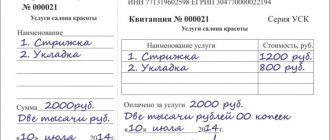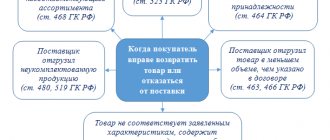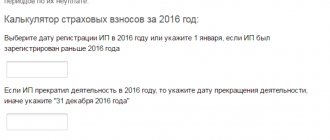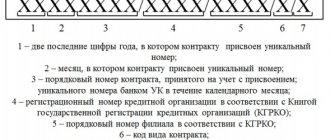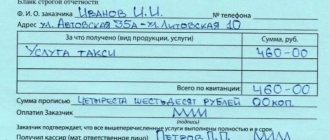Working with the register of professional standards
For several years now, the National System of Professional Qualifications has been actively developing in Russia, which operates in the following areas:
- development of professional standards
- labor market monitoring
- development of an industry qualification framework
- general accreditation of the Federal State Educational Standard (FSES) (Federal State Educational Standard)
- assessment and assignment of professional qualifications.
So, you either know nothing about professional standards, or you know, but a little and from different sources, so we will try to structure and systematize your knowledge and give some useful tips on where to start studying the system of professional qualifications.
How did you live without professional standards before?
The Labor Code uses the term “ qualification ” (Article 195), meaning by it a specific level of labor skills, special knowledge, and work experience required for a particular position. When a person was hired for a “position according to his qualifications,” this meant that he must meet the qualification characteristics of this position given in the Unified Qualification Directory (USC).
This document today is almost hopelessly outdated: many of the positions listed in it simply no longer exist, while many modern professions are not mentioned at all. “Modernizing” unified qualification reference books would be too time-consuming and impractical. A new level of eliminating this problem was needed.
It was decided to replace this regulatory framework with a more convenient and universal tool for determining the minimum qualifications - professional standards.
Professional standards and other related concepts
It is right to assert that professional standards are qualification characteristics brought into greater compliance with the demands of our time. Legislators, approving the procedure for the development and application of professional standards (Resolution of the Government of the Russian Federation No. 23 of February 22, 2013), used modernized combinations of claims to professions, having previously honed them in detail in specialized circles.
The professional standard in relation to the qualification requirement is more realistic, closer to labor reality.
IMPORTANT! The definitions of “qualification” and “professional standard” are not identical: Art. 195 of the Labor Code of the Russian Federation in paragraph 1 specifies that the professional standard is a characteristic of qualifications. The concept of “professional standard” was introduced into the Labor Code only in 2012.
A related term given in the Labor Code and other regulatory documents is “ labor function ”. Art. 57 of the Labor Code obliges the employer to indicate it in the text of the employment contract, that is, to clarify the work that the employee will have to perform within the framework of his position, which does not contradict his qualifications. Now, for this purpose, you can use the approximate definitions of positions listed in section III of the required professional standard. But then the employee must meet the set of requirements given to them.
ATTENTION! A professional standard does not define positions or even professions, but an area of activity, which is why it is more universal. For example, the “Accountant” standard provides for the same job title, and the head of the human resources department can be found in the “HR Specialist” professional standard.
What is the procedure for implementing professional standards in an organization?
If the organization has decided to apply a system of professional standards, the manager must, by order, appoint a responsible employee or even create a working group. Samples of such orders have already appeared in many help systems.
The working group analyzes professions, specialties, and positions to which the requirements of professional standards should be applied in the first place. Based on the results of this study, the working group draws up a schedule for applying the new system to different categories of employees.
At the first stage, it is necessary to check the compliance of the qualification level of the enterprise’s specialists with the requirements of the standards and plan training. It is also necessary to correlate the extent to which the job titles existing in the organization coincide with those approved by the register of professional standards. Rename if necessary.
The next step is to determine whether changes need to be made to job descriptions and employment contracts. For each stage, a completion period should be determined. This will be the schedule for implementing professional standards in the organization.
However, it should be remembered that workers will not currently be able to undergo training and confirm their qualifications for compliance with the professional standard. Qualification assessment centers (QACs), where preliminary training and examinations for obtaining a certificate of professional qualifications will take place, do not evaluate workers yet, since they are at the stage of developing training programs, their testing and their legal registration.
*Note
Application of the professional standard “Accountant” is mandatory only in relation to chief accountants of the following organizations:
- public joint stock companies (except for credit organizations);
- insurance organizations;
- non-state pension funds;
- joint stock investment funds;
- management companies of mutual investment funds;
- management of state extra-budgetary funds.
Key areas of professional standards
In what specific aspects of the employment relationship should professional standards apply? The legislative framework provides for three main areas of their application.
- Work with personnel at the enterprise:
- personnel policy;
- job descriptions and their changes;
- employee pricing;
- certification;
- organization of professional development, etc.
- The connection between education and professional activity . They plan to develop educational programs taking into account professional standards, that is, the future employee will master a set of necessary and sufficient professional characteristics. Situations where a graduate in a certain specialty has one set of competencies, but the employer needs a completely different one, are unacceptable.
- Reflection of real professional experience . When developing assessment strategies for obtaining a certificate or diploma of a particular level, not educational successes, as before, will be taken into account, but the current requirements for the profession, reflected in the standards.
Is it possible to fire an employee for not meeting the requirements of professional standards?
The Ministry of Labor of the Russian Federation provides an explanation on this issue in its letter No. 14-0/B-1190 dated December 30, 2015. According to the document, it is impossible to fire an employee for not meeting the parameters of the professional standard. The Labor Code of the Russian Federation does not provide for such grounds for terminating an employment contract with an employee.
On the basis of non-compliance with the professional standard, the employer can refuse the applicant, but only if the requirements of the professional standards are officially accepted in the organization and are specified in job descriptions.
And, of course, the head of an enterprise, when making a decision to introduce professional standards, must understand that it is on his shoulders that the responsibility for improving the qualifications of workers falls.
Where can I meet them?
The Ministry of Labor of the Russian Federation adopted approximately 8 hundred of the 1000 planned professional standards. The immediate plans (no later than in two years) include the adoption of 2 thousand names of standards.
Initially, they were going to start introducing them into practice from the public sector. It was assumed that commercial organizations would set themselves a set of requirements for their employees. However, this idea is considered unproductive. Federal Law No. 122 clearly states that professional standards apply to all labor spheres and enterprises of all forms of ownership:
- government agencies;
- budgetary organizations;
- commercial structures;
- non-profit associations;
- IP.
As we implement materials about professional standards, we will post them here. Follow the links at the bottom of this page.
Areas of application of professional standards
Paragraph 25 of Rule No. 23 stipulates that professional standards are applied by employers in the following cases:
- in the formation of personnel policy and personnel management;
- when organizing training and certification of employees;
- when developing job descriptions;
- when calculating work, assigning tariff categories to employees;
- when establishing remuneration systems, taking into account the peculiarities of the organization of production, labor and management.
Does this wording mean that the use of professional standards in these situations is the responsibility of the employer, or does he have the right to decide for himself whether to use professional standards or not? Is the procedure for applying professional standards defined? Let's look at these questions.
Who shouldn't evade professional standards?
Since July 1, 2016, the use of standards has been declared an indispensable condition for all entrepreneurs, as required by the Labor Code or other documents. That is, when hiring an employee for whose field of activity the professional standard has already been approved, the employer must certainly use it, and not the qualification reference book. If the required standard for a given profession has not yet been adopted, you can still use the qualification directory.
When the positions in the EKS and in the professional standard are the same, preference should be given to the professional standard as a more modern option.
What specific requirements for an employee (according to standards or according to the Unified Social Standard) the employer will be guided by must be specified in its local legal acts.
NOTE! If the type of professional activity provides for certain benefits (for example, early retirement, payment of compensation for harm, etc.) or restrictions, then such a position must be named in strict accordance with the professional standard or EKS, if such a standard does not yet exist.
What is a professional standard
A professional standard is a characteristic of the qualifications required for an employee to carry out a certain type of professional activity.
This is the norm of Part 2 of Article 195.1 of the Labor Code of the Russian Federation. At the same time, a professional standard is a document that describes labor functions for a certain type of activity, as well as the requirements for the knowledge, skills and experience of specialists performing these functions.
In structure, all professional standards are approximately the same, since they are compiled on the basis of a standard layout approved by Order of the Ministry of Labor of Russia dated April 12, 2013 No. 147n.
Unlike qualification reference books (EKS* for white-collar positions and ETKS** for blue-collar professions), where each section is devoted to one position or area of work, a professional standard may contain requirements for different positions (professions) and differentiate the qualification levels of workers etc. (Note that the qualification levels of workers used to develop professional standards were approved by order of the Ministry of Labor of Russia dated April 12, 2013 No. 148n.) It can be said that in professional standards the labor functions of workers are described more clearly and in detail than in qualification reference books .
It is expected that professional standards will gradually replace qualification reference books (clause 16 of the Comprehensive Action Plan for the development of professional standards, approved by Order of the Government of the Russian Federation dated 03/31/14 No. 487-r, clause 4 of the information of the Ministry of Labor of Russia dated 04/05/16).
How to start applying professional standards?
Here are step-by-step recommendations for employers.
- Open the list of professional standards published on the official website of the Ministry of Labor of the Russian Federation.
- Write down the names of positions from your staffing table.
- Find the standard that matches each job on your list. To do this, you need to look at whether the competencies specified in the standard correspond to your requirements for a particular position. So, for IT specialists there are about 27 professional standards, and you need to study which of them your IT specialist will correspond to.
- Compare HR documents with approximate job titles from the text of the professional standard. If this position does not have benefits, compensation or restrictions, it is not necessary to name it according to the standard.
- If the standard you need is not yet in the registry, ask when it will be adopted; you may have to switch to it soon anyway.
- If your employee’s qualifications do not meet the professional standard, you as an employer can choose one of the following options:
- dismiss an employee based on the results of certification;
- organize his vocational training.
IMPORTANT INFORMATION! An employee’s non-compliance with the professional standard is a violation of the Labor Code, which provides for the responsibility of the employer: a cake maker cannot “make boots.”
Where to download the list of professional standards
The most current list of professional standards on the official resource of the Ministry of Labor is profstandart.rosmintrud.ru, for which you need to find the item “Register of Professional Standards” in the “Useful Documents” block (on the left side of the page) and left-click on it. Next, all you have to do is select the location to save the document and click the “Download” or “Save File” button (depending on the browser you use).
It is noteworthy that the register of approved professional standards can be downloaded in two formats - XML or CSV. Moreover, the system makes it possible to download onto a computer not only the entire registry, but also any professional standard separately.
Note: the offer to download the register of professional standards of the Ministry of Labor of Russia for 2021 can be found on many other sites, however, there you may encounter the fact that the presented database will not be relevant and the information contained in it will simply be outdated. On official resources, the register is updated and changed as new standards emerge.
Possible sanctions from the labor inspectorate
Employers were informed of the need to switch to the requirements of professional standards a year before Federal Law No. 122 came into force. Thus, the Ministry of Labor theoretically assumes that all entrepreneurs in the country are actively involved in the implementation of professional standards. If this is not the case, so much the worse for them.
From July 1, 2021, the labor inspectorate has the right to check compliance with the law in this area, and if the Labor Code contains any requirements for the qualifications of employees, then professional standards must be applied according to them without exception. Administrative liability can range from 30 to 100 thousand rubles.
New norm on the application of professional standards
From July 1, 2021, a new article 195.3 of the Labor Code of the Russian Federation, which is devoted to the application of professional standards, will come into force. To answer the question of whether anything will change in the practice of applying professional standards from this date, let’s consider the provisions of part one and part two of this article.
Part 1 of Article 195.3 of the Labor Code of the Russian Federation
Quote
“If the Labor Code, other federal laws, and other regulatory legal acts of the Russian Federation establish requirements for the qualifications necessary for an employee to perform a certain job function, professional standards in terms of these requirements are mandatory for application by employers” (Part 1 of Article 195.3 of the Labor Code of the Russian Federation).
“Employee qualifications - the level of knowledge, skills, professional skills and work experience of the employee” (Part 1 of Article 195.1 of the Labor Code of the Russian Federation).
Indeed, legislation imposes certain requirements on the qualifications of certain categories of workers. For example, the requirements for the level of education and work experience of chief accountants (or persons entrusted with accounting) are established in Part 4 of Article 7 of the Federal Law of December 6, 2011 No. 402-FZ “On Accounting” (hereinafter referred to as Law No. 402-FZ ). True, these requirements apply only to JSCs (with the exception of banks), insurance organizations, non-state pension funds and some other organizations. The chief accountant who is applying for a job in such an organization must meet the following criteria:
- higher education;
- work experience related to accounting, preparation of financial statements or auditing activities for at least three years out of the last five calendar years. If there is no higher education in accounting and auditing, the experience must be at least five years out of the last seven calendar years.
Now let’s look at the professional standard “Accountant” (approved by order of the Ministry of Labor of Russia dated December 22, 2014 No. 1061n). Clause 3.2 of this professional standard states that the chief accountant must have either a higher education or secondary vocational education. In addition, additional education is provided - advanced training or professional retraining (based on the letter of the Ministry of Labor dated January 12, 2016 No. 14-3/B-3, it can be assumed that additional education is necessary if the main education of the chief accountant is not specialized). At the same time, the requirements of the professional standard regarding the work experience of the chief accountant are similar to the corresponding requirements of Law No. 402-FZ. (For more information about the professional standard “Accountant”, see “The professional standard “Accountant” has been approved: what are the requirements now for the profession” and “The Ministry of Labor has clarified how to apply the professional standard “Accountant””).
Since from July 1, 2021, professional standards become mandatory in terms of those qualification requirements established by the legislation of the Russian Federation, it turns out that having a higher education is mandatory if the chief accountant will work in an organization that is included in the list specified in Part 4 of Article 7 of Law No. 402-FZ (for example, in an insurance company). In other cases, according to the professional standard “Accountant”, the chief accountant can have either a higher education or secondary vocational education and, if necessary, must complete advanced training or retraining courses.
Does this mean that by July 1, 2021, chief accountants are required to bring their qualifications into compliance with the requirements of the professional standard “Accountant”, in particular, take advanced training courses or retraining? Accounting Online addressed this question to the Deputy Head of the Federal Service for Labor and Employment, Ivan Shklovets. According to him, the legislation does not provide that by July 1, 2021, workers are required to receive education or undergo training, which is provided for in professional standards. “They have the right to do this, but only if they consider it necessary,” noted Ivan Shklovets.
As for employers, they can decide to send employees to advanced training courses or retraining in order to meet their requirements of professional standards. However, employers have no such obligation. According to Article 196 of the Labor Code of the Russian Federation, the need for training (vocational education and vocational training) and additional professional education of employees for their own needs is determined by the employer. This is reported in paragraph 11 of the Information of the Ministry of Labor dated 04/05/16.
Keep in mind
Additional education provided for in many professional standards, including the professional standard “Accountant”, includes programs for advanced training and professional retraining. The minimum permissible period for mastering advanced training programs is 16 hours, and professional retraining programs - 250 hours (clause 12 of the Procedure, approved by order of the Ministry of Education and Science of Russia dated July 1, 2013 No. 499). The organization that conducts such training must have a license to carry out educational activities according to the relevant program (Part 1, Article 91 of the Federal Law of December 29, 2012 No. 273-FZ “On Education in the Russian Federation”).
Let us note that some experts propose a different interpretation of Part 1 of Article 195.3 of the Labor Code of the Russian Federation. In their opinion, the professional standards approved by the Ministry of Labor and published can be attributed to those regulatory legal acts of the Russian Federation that are mentioned in this norm. This means, such experts say, from July 1, 2021, the requirements of all accepted professional standards become mandatory for employers. However, according to Ivan Shklovets, this conclusion is incorrect, since it is refuted by the provisions of Part 2 of Article 195.3 of the Labor Code of the Russian Federation.
Part 2 of Article 195.3 of the Labor Code of the Russian Federation
Quote
“The characteristics of qualifications that are contained in professional standards and the mandatory use of which is not established in accordance with part one of this article are used by employers as the basis for determining the requirements for the qualifications of workers, taking into account the characteristics of the labor functions performed by employees, determined by the technologies used and the adopted organization of production and labor" (part 2 of article 195.3 of the Labor Code of the Russian Federation).
In other words, if the legislation of the Russian Federation does not contain mandatory requirements for the qualifications of a particular category of workers, then the employer has the right to use the corresponding professional standard only as a recommendatory methodological document.
As an example, we can name the professional standard “Human Resources Management Specialist” (approved by order of the Ministry of Labor of Russia dated October 6, 2015 No. 691n). The current legislation of the Russian Federation does not impose requirements for the qualifications of human resources specialists, therefore the use of the specified professional standard is not mandatory. At the same time, on the basis of this standard, it is possible to determine the names of positions, establish the labor functions of workers, requirements for their education and work experience, etc. But since in this case the professional standard will only be a guideline, the employer has the right to introduce softer or, conversely, more stringent requirements than those specified in the standard.
Can an employer, for whom the use of professional standards by virtue of Part 2 of Article 195.3 of the Labor Code of the Russian Federation is not mandatory, not take them into account at all? “This is possible,” answers Ivan Shklovets. “But you shouldn’t completely ignore professional standards.”
